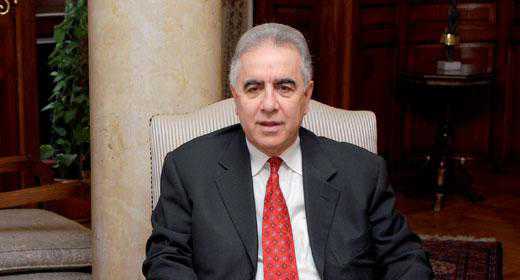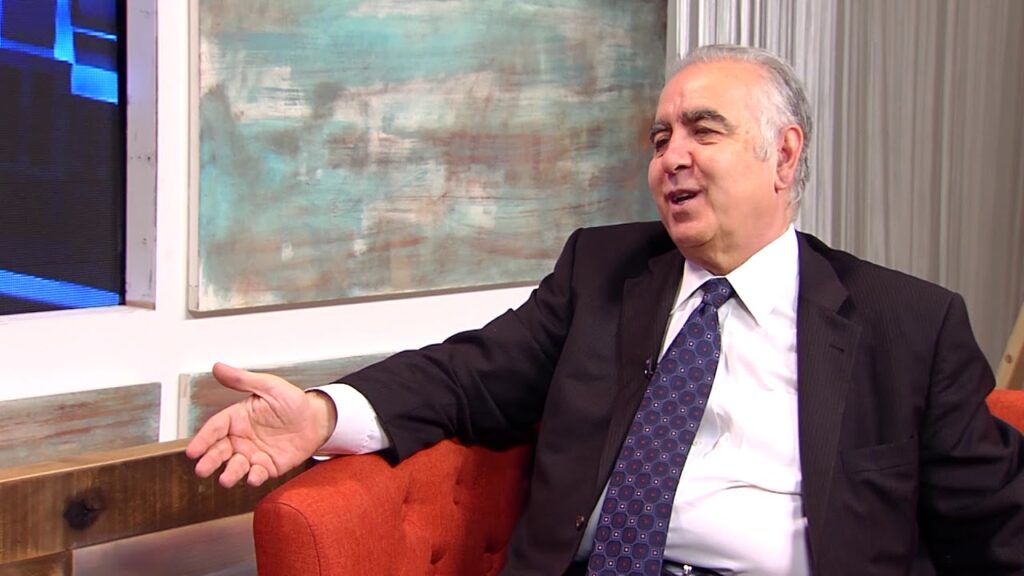
The Armenian Patriarchate of Istanbul upset many Armenians in Turkey and around the world when it failed to send a clergyman to the recently renovated Saint Guiragos Church in Dikranagerd (Diyarbakir) to celebrate Divine Liturgy on Easter Sunday.
St. Guiragos is not just any Armenian church. With seven altars and a capacity for 3,000 worshipers, it is one of the largest Christian churches in the Middle East. The church’s belfry was destroyed on May 28, 1915, by Turkish artillery because it was much taller than the minarets of nearby mosques. Turkish soldiers forced the city’s Deputy Prelate, Mgrditch Vartabed Chlghadian, to watch the destruction of the belfry as he was dragged to his eventual martyrdom!
Amazingly, St. Guiragos remained a functioning church until the 1980’s with a local priest performing regular church services year round. As the few remaining descendants of Armenian Genocide survivors left the city, the church fell into disrepair and was abandoned.
In recent years, Dikranagerd Armenians who had resettled in Istanbul established the St. Guiragos Foundation which renovated the church at a cost of $3.2 million. Two thirds of the funds were donated by Armenians of Istanbul, Europe, and North America. The remaining one-third was provided by Diyarbekir’s Kurdish city government which has been highly supportive of many local Armenian initiatives.
To their great chagrin, St. Guiragos parishioners were deprived of liturgical services on Easter Sunday as the Armenian Patriarchate informed them that it could not spare a clergyman to perform Mass in their church. They were told that none of the Patriarchate’s 23 clergymen were available, as they had to officiate in Istanbul’s more than two dozen functioning churches, but were promised that a priest would arrive in Dikranagerd the Sunday after Easter.
St. Guiragos parishioners were terribly disappointed, since they had just installed new church bells procured from Moscow at great expense and effort. They had to ring the bells on Easter Sunday for the first time in almost 100 years, without a cleric’s presence to hold services! The worshipers, inspired by the majesty of the church, lit candles and recited prayers, assisted by local Armenian language teacher Kevork Fikri.
The Armenian Patriarchate does not seem to be the least bothered by its inexcusable failure to provide a clergyman to the Dikranagerd church on the joyous occasion of Easter Sunday, even though the embarrassing details of its unacceptable behavior were widely publicized in the pages of several Turkish newspapers, including Hurriyet and Radikal.
In the absence of Patriarch Mesrob Moutafian, who has been hospitalized for years with a terminal illness, the Deputy Patriarch Aram Ateshian has been running the Patriarchate’s affairs. He should have assigned a clergyman to serve in Dikranagerd not only on Easter Sunday but throughout the year. He should have also provided all possible assistance to the many Islamized and Turkified Armenians who have come forward asking to be baptized in the newly renovated church.
Even more disturbing is the fact that Aram Srpazan on several occasions has made critical remarks about Diaspora Armenians asking the Turkish government to return to the Armenian Patriarchate over 2,500 confiscated churches. He has repeatedly asserted that the Patriarchate has neither the funds nor the clergy to renovate and operate these churches. Srpazan Ateshian fails to understand that the first step is to secure the return of the church structures before worrying about renovating them. Whether the Patriarchate has the necessary funds or not, Armenians have the right to demand the return of these churches. Moreover, many of the confiscated Armenian churches owned adjacent lands and buildings that could provide the necessary income to renovate and operate these parishes.
Given Archbishop Ateshian’s lack of enthusiasm about the return of Armenian churches to the Patriarchate, it is not surprising that, even though he is a native of Dikranagerd, he has not made a sincere effort to provide a clergyman to St. Guiragos Church on Easter Sunday. One wonders if he is buckling under Turkish pressure to discourage the budding national and religious revival movement among Dikranagerd Armenians. Otherwise, making advance arrangements to send a clergyman from Istanbul, Armenia, Lebanon, Jerusalem, Europe or even the United States, would have been an easy task.
It is unfortunate that Islamized and Turkified Armenians have to confront the Patriarchate while battling the Turkish government in their quest to return to their ethnic and religious roots, and regain their usurped rights and properties.
